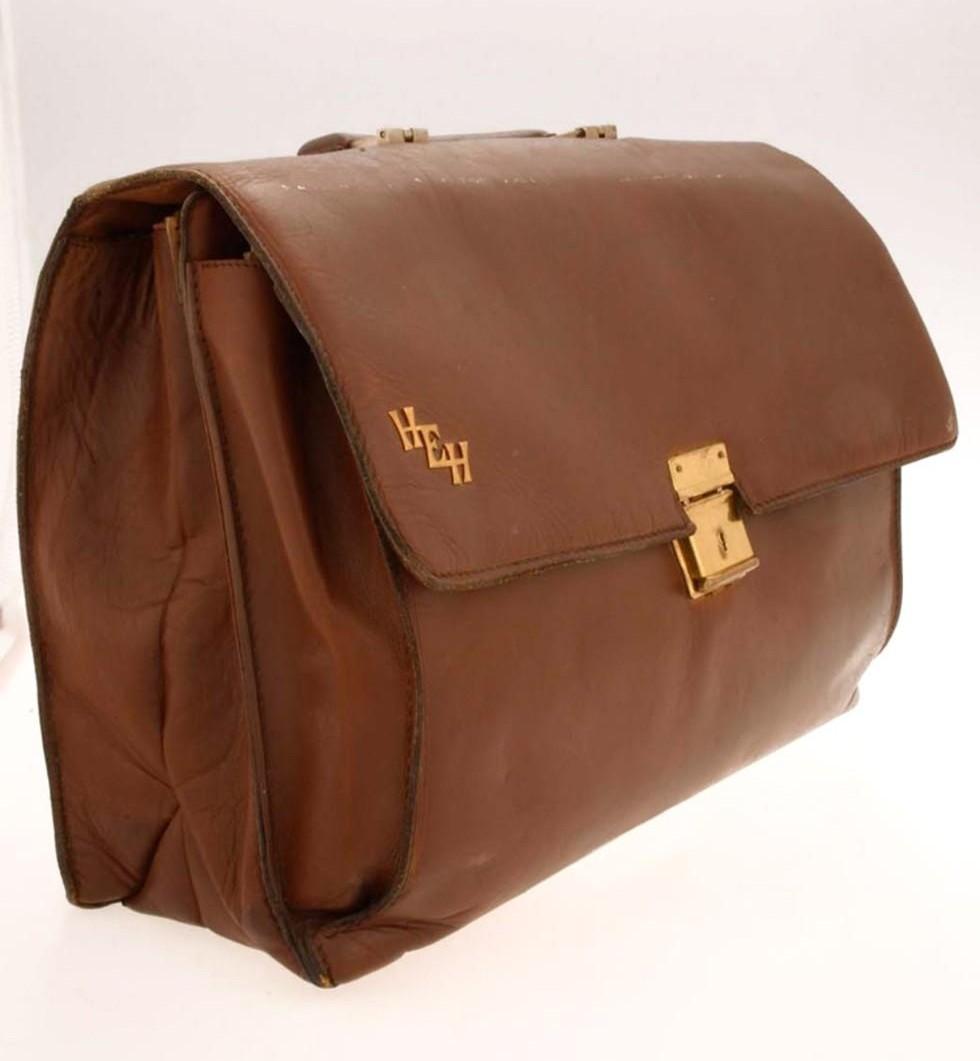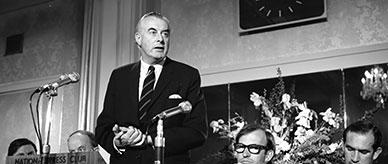


About this record
This is the brown leather briefcase prime minister Harold Holt took with him to Portsea, Victoria, shortly before his death. It has the initials 'HEH' in yellow metal on the front flap and a yellow metal clasp with a lock. The briefcase contained government documents relating to government affairs including papers on the Liberal Reform Group, the Australian Bankers' Development Refinance Corporation and correspondence concerning William McMahon, as well as personal papers and items.
Educational value
- This briefcase contained the government and personal papers Harold Holt (1908–67) had in his possession prior to his extraordinary disappearance in December 1967. Holt's decision to go swimming at Cheviot Beach at Portsea, in what were clearly dangerous conditions, led to his presumed death.
- Holt took the briefcase with him on a weekend break to Portsea at a time of division and crisis in the Liberal Party. During his 22 months as prime minister Holt was troubled by scandals, including his handling of the inquiries into the sinking of the HMAS Voyager and rising public unrest about the war in Vietnam, which caused dissent in his own party over his leadership. Although unlikely to have lost the leadership, Holt would have been under serious stress.
- The documents in the briefcase were collected at Holt's holiday house after his death and placed in the case by the Commonwealth Police, who feared that they may have included sensitive material related to the Vietnam War. While they did not contain such information, the documents are indicative of his heavy workload and his involvement in an internal party dispute between John McEwen and William McMahon. His weekend break would have helped him to relax.
- Medication found in the briefcase also suggested that physical factors had contributed to Holt's death. He was suffering from a shoulder injury at the time, which may have affected his swimming ability, and medication may also have contributed to his decision to go into the rough swell.
- While Harold Holt was not the first prime minister to die in office, his unexplained disappearance and the absence of a body generated enormous public interest. There was speculation of suicide or that he had been taken onboard a Chinese submarine. At the time, however, search and rescue operations had been hampered by the tides and high winds making the task of finding his body much more difficult. The final inquiry in 2005 concluded that he had accidentally drowned while swimming in rough conditions.
Acknowledgments
Learning resource text © Education Services Australia Limited and the National Archives of Australia 2010.
Need help with your research?
Learn how to interpret primary sources, use our collection and more.

